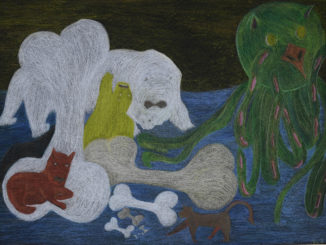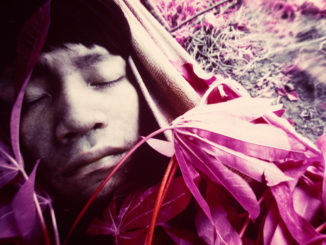 Most of the time we know what the right thing to do is, however, having this knowledge does not exactly mean that we will always do so. We know that we should not do to others what we would not like done to us, we know that we should be kind, we know that we should support each other, these are all lessons we learn in grade school.
Most of the time we know what the right thing to do is, however, having this knowledge does not exactly mean that we will always do so. We know that we should not do to others what we would not like done to us, we know that we should be kind, we know that we should support each other, these are all lessons we learn in grade school.
At what point in our lives do we part with those principles? Are we old enough to decide whether to do the right thing or not? Or is the concept ageless? Pablo Malco, performer and founder of the Pablo Malco Foundation, tackles this very idea in his latest one-man show entitled My Life Un eD Did Tid.
He begins the performance by saying, “I am you and you are me”, and opening up to the audience by sharing stories of his childhood, stories that he admits still affect the person he is today. He reveals these experiences in an effort to demonstrate the weight of hateful words on children: “That stays with a child” he says.
Throughout the performance, Malco breaks into song and dance – a visual and sensory addition to his words. At one point, he tells the story of turmoil within him, his ongoing battle with society’s expectations, and shares an interpretive dance with the audience that he follows by saying, “That’s what goes on inside me everyday.” He encourages us to be ourselves and to ignore what society dictates that we should be based on our skin tone, our background, our economic standing. He bares his anger toward stereotypes and even worst, self-stereotypes, emphasizing our impact on children and the message we send them by dressing or acting a certain way, by choosing certain paths and fulfilling false ethnic prophecies.
My Life Un eD Did Tid has reached audiences everywhere for over fives years as Malco keeps his availability for campus performances ongoing and resilient. It is Malco’s mission to change the world one audience at a time. He defends his dream of reaching and enlightening “souls” through his performances and inspiring them to take on some of the ideas he talks about so passionately; he describes himself as a “vessel” and as such, a recruiter of others. The concept of self-trust is one of the most important components of Malco’s dance, music, and monologues as he proposes it to be the strength we need to be the best version of ourselves, the best vessel we can be. Malco leaves us in a self-reflective state that forces us to evaluate our everyday actions, the state of our relationships, and the vision we have of ourselves. Do others see you for who you really are?



Be the first to comment